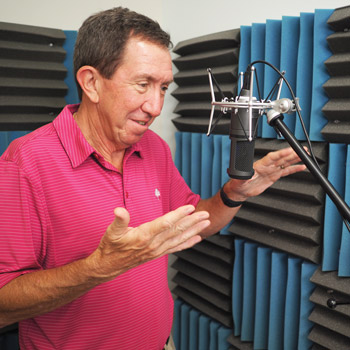Seeking a new vision for American health care
ACP's New Vision initiative will engage all of ACP's policy committees, as well as its membership, in examining what is working well and what is not with American health care.
“Arriving at meaningful solutions is an inevitably slow and difficult process. Nonetheless, what I saw was: better is possible. It does not take genius. It takes diligence. It takes moral clarity. It takes ingenuity. And above all, it takes a willingness to try.”
This quote, from “Better,” by renowned surgeon/writer Atul Gawande, MD, described his experience with efforts to improve hospital surgical care. It applies equally well to arriving at meaningful solutions to the shortcomings of the American health care system. We know that better is possible, yet it will take diligence, moral clarity, ingenuity, and, above all, a willingness to try.
ACP is willing to try. A few months ago, ACP launched the New Vision for American Health Care initiative. Included in the strategic themes adopted by the ACP Board of Regents, this New Vision initiative aims to propose meaningful solutions to make health care more effective and accessible, less costly and less complex.
If you talk to doctors and patients alike, you'll find they express many similar frustrations with American health care:
- Insurance doesn't necessarily provide affordable access. Even though the Affordable Care Act (ACA) has dramatically reduced the number of Americans without health insurance, many millions still lack coverage, and those who have it are paying more out of pocket for it. And their insurance may only cover services from increasingly narrow networks of doctors and hospitals under contract to the insurer.
- It costs too much. Whether it is excessive prices for prescription drugs, surprise medical bills from out-of-network clinicians, or hospital stays costing hundreds of thousands of dollars, health care is simply not affordable for millions of Americans, especially if they are uninsured or in a high-deductible health plan.
- It's too complex. Think of a patient deciphering a hospital bill or their insurer's explanation of benefits, getting a prescription approved by a pharmacy benefit manager, or appealing a denied claim. Meanwhile, physicians deal with seemingly endless demands to sign off on forms, submit performance data, and provide detailed and unnecessary documentation for billing purposes. Such complexity adds hundreds of billions of dollars to health care spending, tens of thousands of dollars in overhead costs to doctors, and incalculable minutes and hours lost to paperwork.
Add to this a payment system for doctors that devalues the work involved in treating the most complex patients, pays more for procedures than cognitive care, discourages doctors from going into primary care, fails to take into account the challenges and work associated with taking care of patients from poorer communities, underpays female physicians relative to their male peers, and pays doctors for doing more rather than doing better.
Then there is the abiding sense of powerlessness. Sick patients often find that for all of the talk about patient-centeredness, the system seems designed to meet the needs of everyone but them. This is especially true of persons from historically disadvantaged racial and ethnic communities, women, and LGBTQ persons, for whom continuing discrimination, disparities, and social determinants of health result in poorer care and outcomes. Doctors, while still respected for their clinical skills, increasingly work in large systems where someone else calls the shots; those who remain in smaller “independent” practices are subject to the dictates of the regulators and payers, and many such practices are barely surviving.
When it comes to American health care, better not only is possible, it's imperative.
ACP's New Vision initiative will engage all of ACP's policy committees in examining what is working well with American health care, and what's not. We will look for lessons from other countries' health care systems, since they may have found other ways to address coverage, cost, complexity, compensation, and patient-centeredness that can inform us, as well as pitfalls and adverse consequences to avoid. We will look at the best ideas from researchers and policymakers in the United States, across the conventional ideological left and right divide. We will look to the states, because often states are ahead of the federal government in pursuing innovative approaches.
And we will look to ACP members for answers, both those involved in leadership as Governors and Regents and the larger membership as well. Soon, we will be unveiling more detailed plans on how members can offer us their insights.
We will also subject whatever ideas that seem to have the most merit to hard-nosed reality tests. Who will oppose them and why? (Keep in mind that each of the perceived shortcomings of American health care benefits someone: Excessive prices mean more revenue and profit to those setting them, complexity is used as a tool to make it difficult to challenge insurer and business practices that physicians and patients dislike, many Americans are employed as health care administrators and billing clerks, and so forth.) What are the political realities? Are there approaches that can win bipartisan support, or will this be another case—like the ACA—where major reforms are passed on a strictly party-line vote, thereby ensuring continued opposition from the other party? How do we transition from what we have today in the United States, with all of its shortcomings, to ACP's new vision for a better health care system? Will our own membership be unified behind what we recommend?
Borrowing again from Dr. Gawande's observations about change, proposing a new vision for American health care will be an inevitably difficult process, requiring diligence, moral clarity, and ingenuity. Yet ACP's willingness to try is exactly what is required to achieve what we all know is possible, a better health care system for all Americans.





